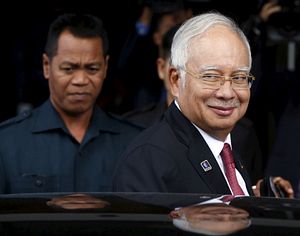High-level corruption in Malaysia is gaining unprecedented levels of attention and spurring a movement for political reform. But it may not be enough to change the status quo.
Last year, the Wall Street Journal revealed that Malaysian Prime Minister Najib Razak was being investigated for transferring almost $700 million from a state-controlled investment fund, known as the 1 Malaysia Development Berhad (1MDB), into a personal fund during the lead up to the country’s 2013 parliamentary elections. The transfers crossed enough borders that entities as diverse as the Swiss Attorney General and the FBI launched investigations. Now, amidst ongoing calls for his resignation, the prime minister is using every means available to protect his position. Over the past six months, Najib blocked the website of an opposition group, suspended two Malaysian newspapers, fired his deputy and several police officers, and threatened to take legal action against the Wall Street Journal. Most recently, a critic of the prime minister was arrested and forbidden from leaving the country. In late January, the Malaysian attorney general announced that he had decided to close an investigation into the transfer. The announcement was greeted with outrage.
None of this has stopped Malaysian civil society, which launched into action by staging some of the largest anti-corruption demonstrations the country has seen in years. Rallies organized by Bersih (which means “clean” in Malay), a nine-year-old civil society group that advocates for free and fair elections, drew around 25,000 people in the country’s capital, Kuala Lumpur. A variety of non-governmental organizations joined Bersih to demand accountability and reform, leading some to suggest the financial scandal was energizing a widespread movement for political transformation. Activists say the Malaysian public has never been more aware of high-level corruption, and almost everyone knows about the 1MDB scandal. Still, experts say that popular demand is not enough to rid the government of corruption. Major structural reforms are needed if the political system is to be wiped clean.

































